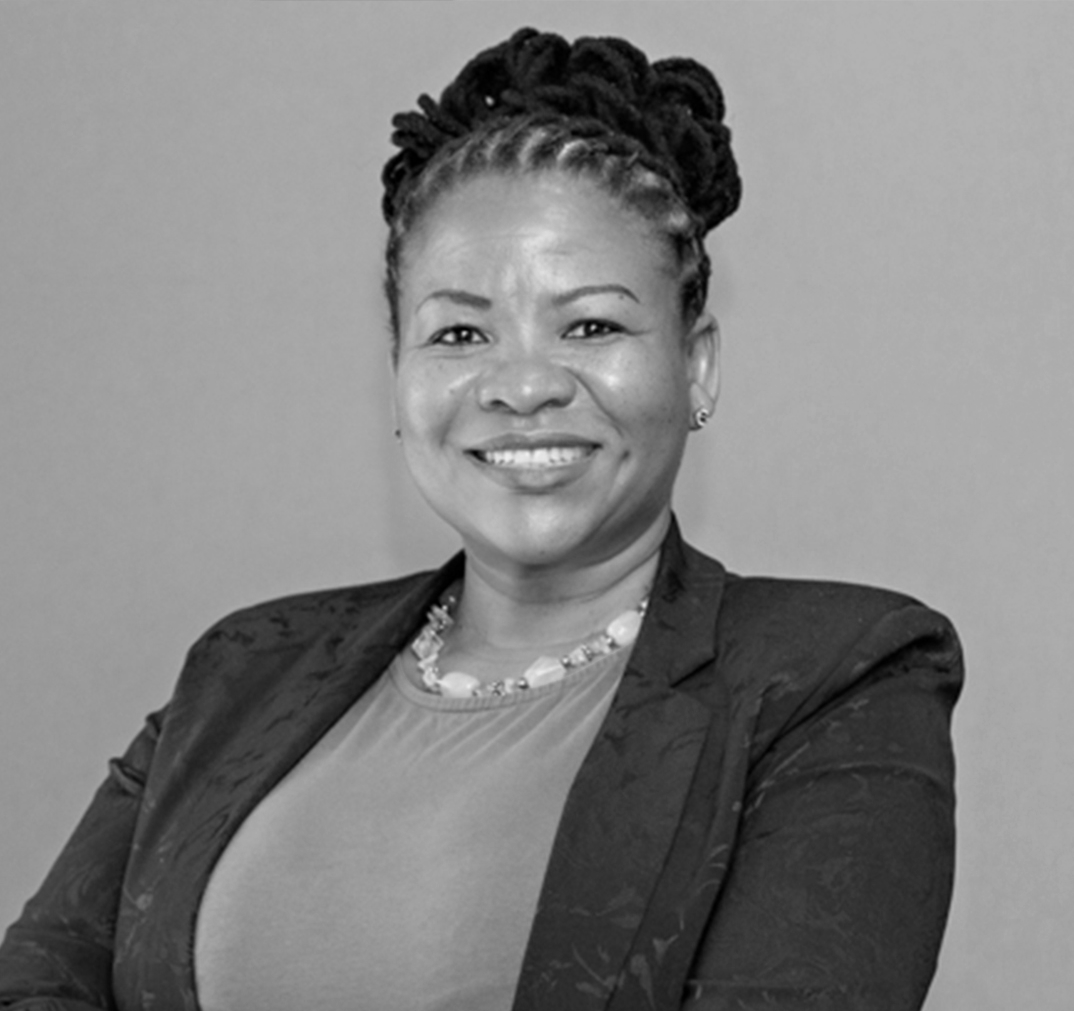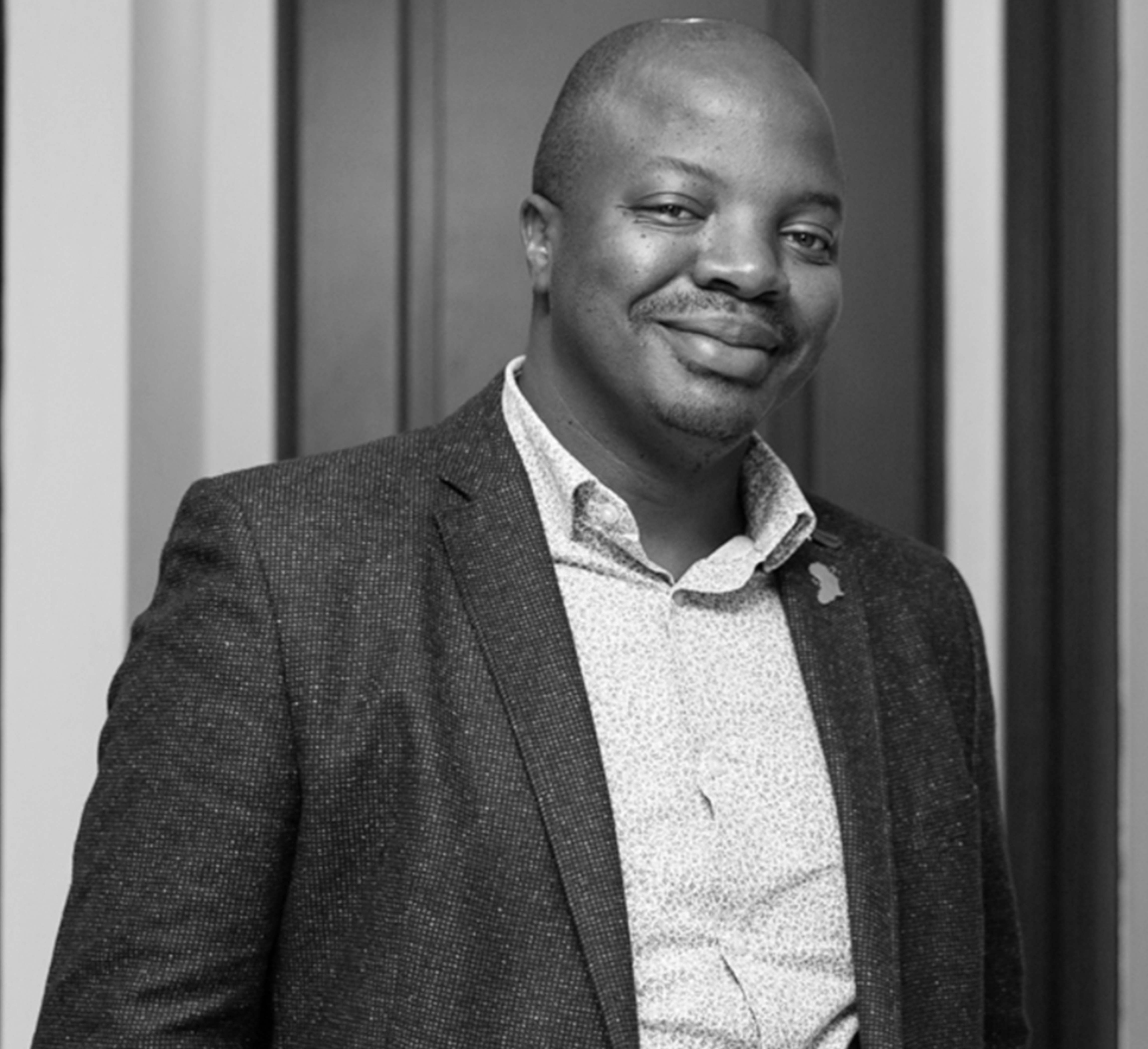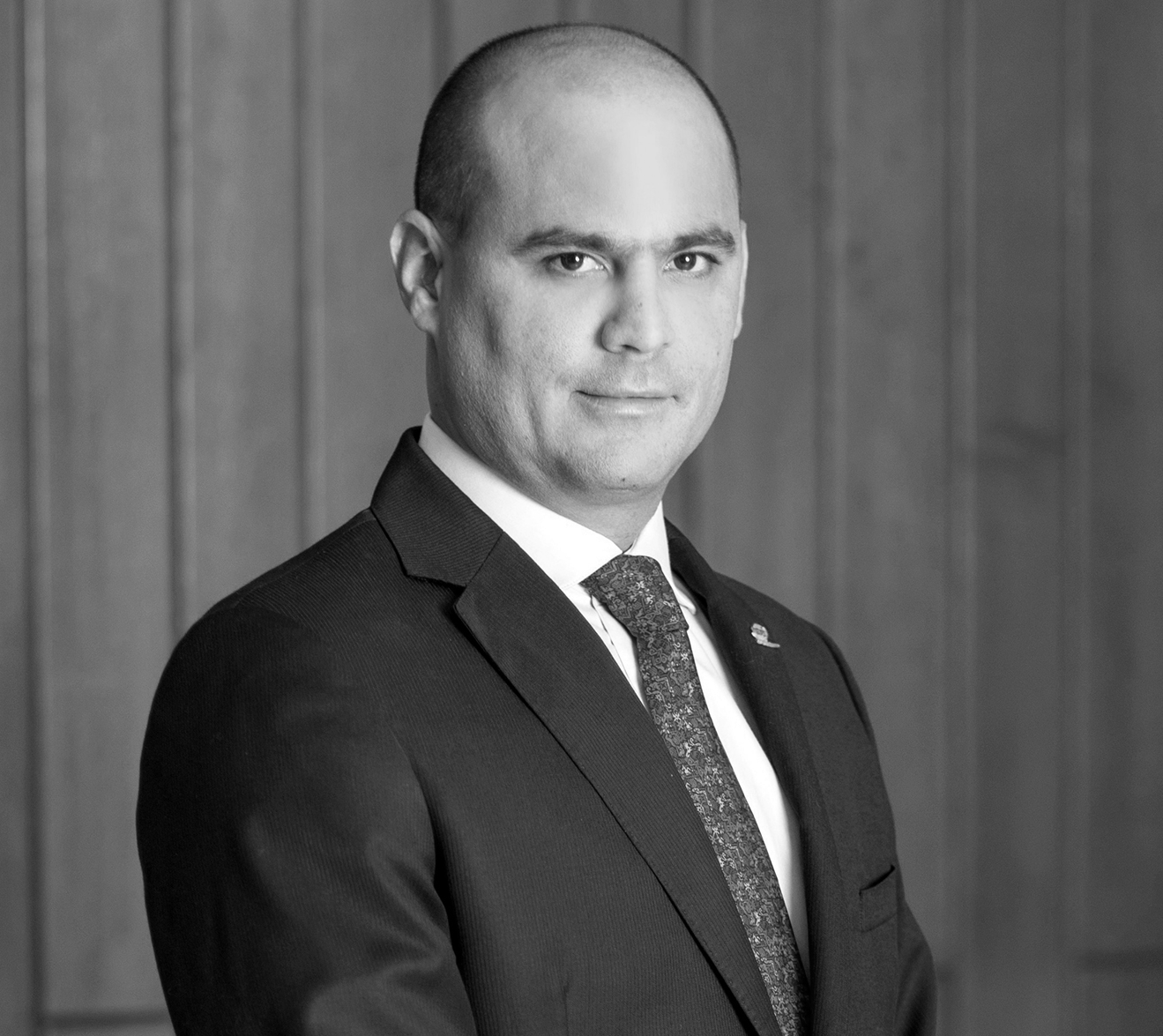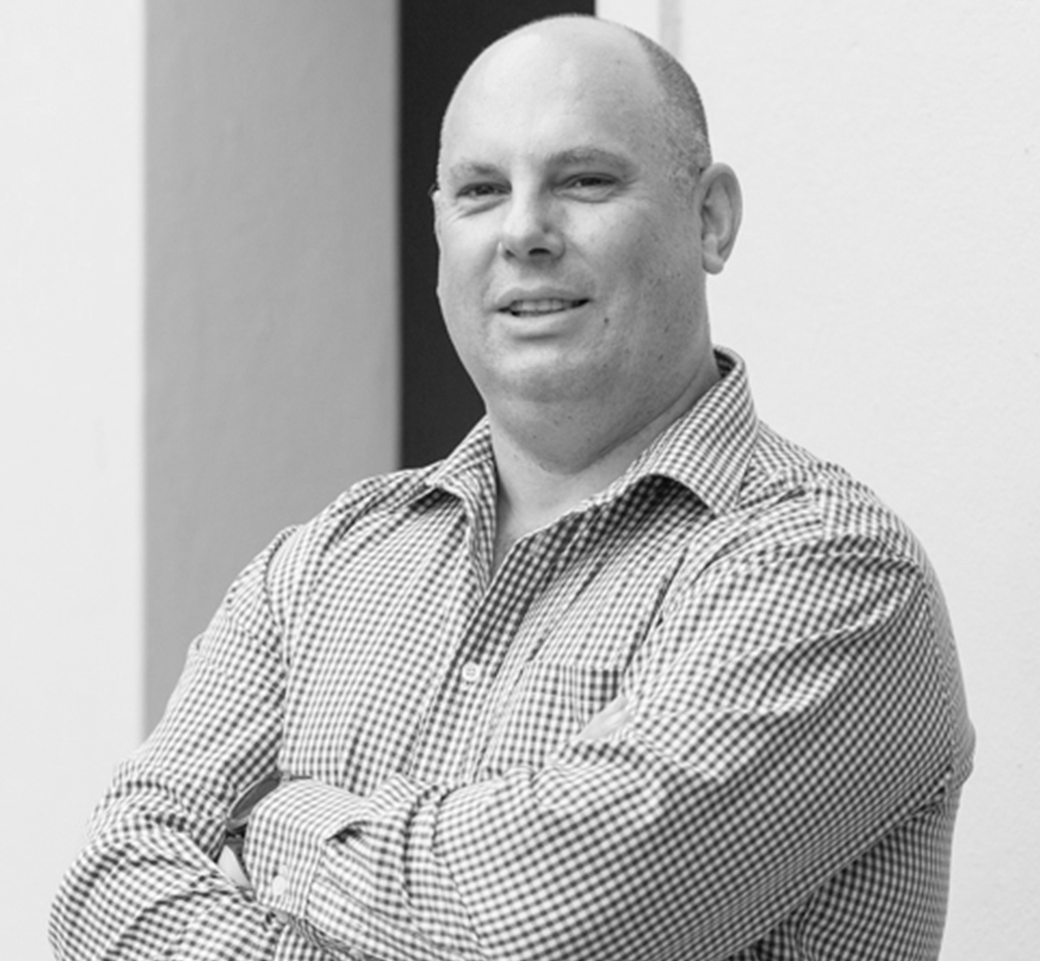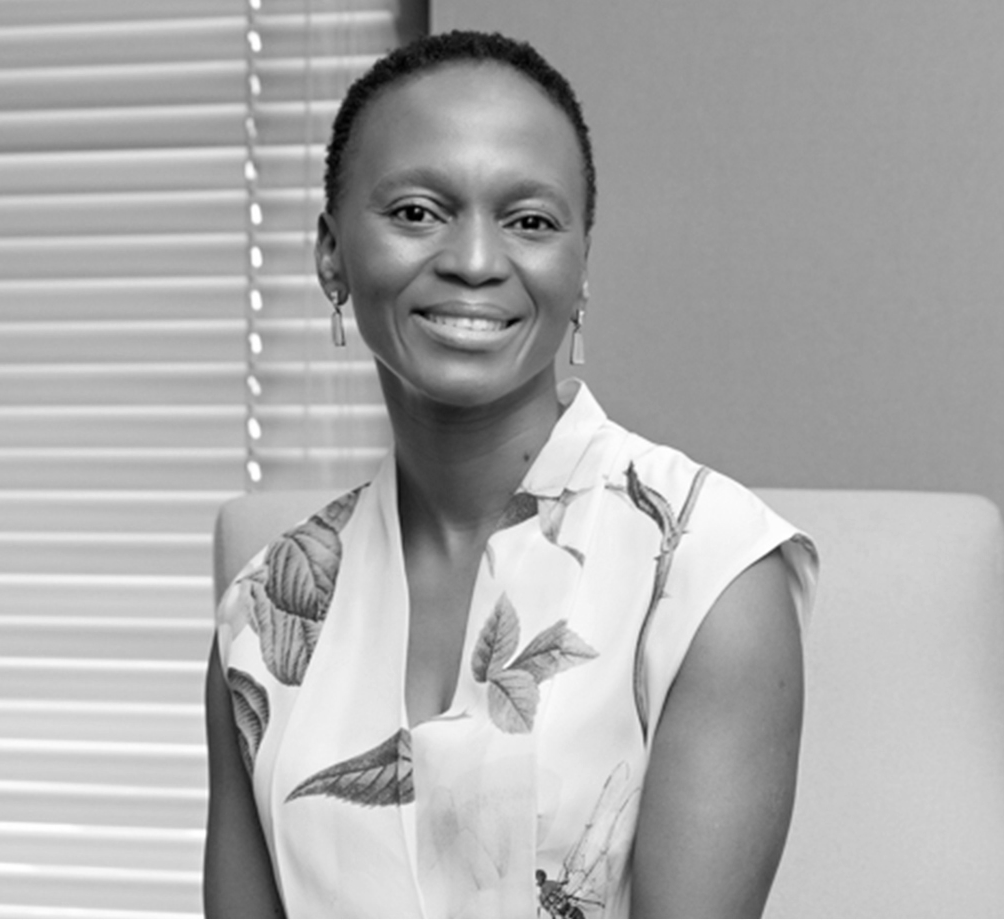11: Renolda Mogale
Director of financial management: Stats SA
‘SA in numbers. Attention to detail, a dedicated work ethic and continual training ensures that Stats SA not only maintains its reputation for clean audits but also consistently provides accurate data.’

CIARAN RYAN: This is CFO Talks and today we’re delighted to be joined by Renolda Mogale, she is the director of financial management at Stats SA. Stats SA is the body that keeps huge volumes of data on South Africa, on economic trends, population trends, poverty and the like. This is a vital organisation on which so much of our public policy depends. Renolda is a member of the South African Institute of Business Accountants and she was instrumental in Stats SA receiving clean audits beginning in the 2014 financial year, all the way up to the present. She serves on the audit progress committee and the IT committee at Stats SA and has more than 26 years of experience in the public sector. Welcome, Renolda.
RENOLDA MOGALE: Thank you, Ciaran.
CIARAN RYAN: I wanted to ask you because I noticed on your CV that you are the only person I think I have ever come across who has made a point of this, how you prioritise time management. I think if you talk to 100 people, 98 of them will tell you that this is an area that they are still trying to master. How do you manage your time?
RENOLDA MOGALE: I think time is a challenge for everyone because there are so many competing priorities in one’s daily activities. But as finance professionals our work has always been a time-bound kind of work, where we have to do compliance reporting, management reporting and reporting for our executive committee, and provide financial statements for auditing. Therefore, one has to prioritise these activities very well. I often approach this in a project management way, where you make sure that for that particular month you schedule and prioritise activities. We live in a digital age where information is required every five minutes but then when it comes to a time for priority work, especially for us when we have to do reporting, you have to make sure that during that time it is that and nothing else. That’s how I think we successfully manage to submit our reports on time to make sure that we close our books on time. In government the timelines for closure of books are set by National Treasury and we are given about six or seven working days after the last day of the month to close the books on the system. As Stats SA we have managed to do that mostly within three days after and that is mainly because of the systems and the processes that we have put in place that has enabled us to achieve that kind of success. It has always been a team effort.
CIARAN RYAN: Talk for a minute about Stats SA and explain to people what is Stats SA, what does it do and how important it is to the proper functioning of the economy and also, in amongst that, the size of the budget that you have to look after.
RENOLDA MOGALE: Stats SA is a national government department and its mandate is founded, obviously flowing from the Constitution of the country and the Statistics Act, which mandates the Statistician-General to produce what we call official statistics on social stats, population stats and economic stats, and part of our products and to make sure that they are certified as official. That is done within what we call SASQAF, which is the quality framework that governs the methodologies, the sampling methods and so on for our data that is produced. Some of those products that we produce are CPI that is used by the Reserve Bank, the GDP, which is also used by the Reserve Bank to determine inflation. We also produce population and employment stats; we provide figures for the unemployment rate of the country. So those are some of the things that we do.
How accurate is the census
CIARAN RYAN: Here’s a trick question for you, what’s the population of South Africa?
RENOLDA MOGALE: Currently the estimate is at 58 million.
CIARAN RYAN: Very well done, I checked it before you came in [laughing].
RENOLDA MOGALE: [Laughing].
CIARAN RYAN: Okay, so the last census was done in 2011 and I think the population came out at that time at 55 million, so clearly there are adjustments made subsequent to that. There’s a question that I want to ask you and it’s a debate that we’ve had here for some time, the number of illegal or undocumented immigrants that there are in South Africa. Some people are saying that the number of undocumented people in South Africa is ten million, some people are saying it’s three million. Is this covered by the census and the question that’s being asked is how accurate is that census, does it count the undocumented people?
RENOLDA MOGALE: As I indicated earlier, our mandate is to count and use methodologies that are within SASQAF and counting illegal immigrants is not part of the official statistics that we produce. However, during a census Stats SA counts literally everyone and anyone who is within the borders of South Africa, and also South Africans who are outside of South Africa are also counted. People who are living on the streets, under the bridges, people who are in hospital are counted, people who are in prisons are counted, children in schools, people in businesses and literally everyone who is within the border is counted and that information is updated and is available when the results of the census are disseminated after the count. In between those periods there are population stats that are performed that are used to provide estimates to say by how much the population is growing. That is based on some methodologies that the statisticians, and I am not a statistician, use to update the population.
CIARAN RYAN: You’ve been at Stats SA for ten years in various different positions, so previously you were in the office of the chief financial officer, you’ve also been a member of various committees throughout that time. Can you explain what changes you have seen in Stats SA in the last ten years and what are some of the challenges it had to overcome in that period?
RENOLDA MOGALE: Stats SA has really come a long way, as you have indicated earlier, one of the things that we have achieved as Statistics South Africa is to attain what we call a clean audit, which means that the Auditor General when they audited our financial statements, they did not find any material errors or no errors at all and that there were no findings on the audit and there was no non-compliance found during an audit and that is an audit of how we performed financially as an organisation within the framework of the Public Finance Management Act, the National Treasury regulations and other practice instructions that are issued by the National Treasury. If I look back there is this thing that Treasury used, which is called the financial management maturity model and that model has got five phases, the first phase is normally a start-up, on the second level you have more processes in place, documented policies, procedures and the third level is when you have attained a level of full compliance, you have your systems, your standard operating procedures documented, you have your policies that govern how you do things from procurement to transacting and all those things and the monitoring processes are in place. Where Auditor General South Africa is monitoring at the moment…one of the hurdles that we had to overcome was to get the organisation to comply because compliance normally means if I want to buy something I have to complete a form, I have to get authorisation. We are a fast-paced organisation because we are project-based, you’ll find that we are producing our own official statistics and sometimes we are requested by other state organisations to run a survey for them, so you’ll find that we are running multiple projects at the same time, which used to frustrate our core function areas. But with time, as we worked together with them, as we created more awareness, as things did not go right we go and educate and talk more until they saw the value of that. Also, as I indicated, from 2014 we started to get clean audits, it’s not that we got unqualified audits in the past, we got qualified audits and we got unqualified audits, however they had some matters of emphasis that came with them that we had to address and that took a lot of change management initiatives that had to happen. One of those is embedded in what normally is called within organisational studies, people, processes and systems. You need to have the right people in place, you need to have the tools to enable the people to perform optimally and you need to have automated systems. Most government departments a few years ago used to struggle to pay their service providers on time, which affects what government was trying to achieve in terms of building up small businesses and that was a pain point for government. We at Stats SA have what we call an automated system that tracks the invoice from the time that it’s received up until it’s paid. We had that but we were not achieving the 100% payment within 30 days and that’s also prescribed by the Public Finance Management Act. Whilst we had that, what happened I think it was after the 2011 census, it was in that year we got a qualified audit and that came, even if we did most of the things correctly in comparison to the census that we had before the 2001 census but paying suppliers was a pain point. What we realised is that I had an opportunity to be deployed to go and see what is lacking there. We had the right people at Stats SA, when we appoint within the finance division we make sure that we employ people who have at least a tertiary qualification, a national diploma or a degree. So we had the right people, we had processes that were documented. Upon my deployment the focus was on paying invoices but you have an account with a service provider or a supplier, so you have to pay an account, not an invoice. So imagine, one of our cost drivers is on travel and accommodation, when we deploy fieldworkers into the field they use cars, so we rent cars from car rental companies and when the invoices come, during a census, for example, you might find that we’ve rented 10 000 cars and we have 10 000 invoices in that month.
CIARAN RYAN: That’s a lot to process.
RENOLDA MOGALE: That’s a lot to process. Now, when you enter this into the invoice tracking system all the information is there, what you needed to say is that during the validation process you need to say when I pay I don’t pay an invoice, I pay the account, so you consolidate all of that. Once we started doing that, that worked for us, we managed to achieve our 100% payment of invoices, of payment of service providers’ accounts within 30 days. What emanated from that – we’ve had the system since 2006, the system was developed and enhanced over time – but after that, when we started achieving this it was when the system was recognised by government and now it has been shared with various government institutions, they are also still struggling, so we share with them the processes that are employed in an accounts payable division and that has helped a whole lot of government departments.
CIARAN RYAN: So you started with Stats SA and now you’re spreading it out to other government departments.
RENOLDA MOGALE: Yes.
Stats SA’s employees and budget
CIARAN RYAN: How many people work at Stats SA?
RENOLDA MOGALE: Currently we have 2900.
CIARAN RYAN: All around the country?
RENOLDA MOGALE: All around the country.
CIARAN RYAN: Okay and where is the head office?
RENOLDA MOGALE: The head office is in Pretoria.
CIARAN RYAN: Is there also a branch in Braamfontein in Johannesburg?
RENOLDA MOGALE: Yes, we have our provincial office in Braamfontein in Johannesburg and then we have other provincial offices and district offices across the country. I think we have about 51 or 52 district offices across the country.
CIARAN RYAN: What is the size of the budget that you have at Stats SA per year?
RENOLDA MOGALE: This month, March, is the last month of the financial year, so we are closing the year, we are closing books. Normally our budget is around R2.1 billion but in the next [13:14] it’s about R10.7 billion and it’s R10.7 billion because of the census that will be happening in 2021.
CIARAN RYAN: Okay, so you start preparing for that now?
RENOLDA MOGALE: Yes, we are busy preparing for that now. In the next year I think it’s
R2.4 billion and then it grows to R3.3 billion and then in the year of the census it’s around
R4 billion.
CIARAN RYAN: So you’re working on a three-year budget then of about R10 billion.
RENOLDA MOGALE: Yes.
CIARAN RYAN: Okay, got it. The Public Finance Management Act is the governing act for any public body and I am delighted to learn that you at Stats SA achieved clean audits pretty much from the moment that you got on the job in 2014 and now you are actually spreading that to other government departments, maybe you’ve answered this but how was this achieved? The fact that you got a clean audit meant that you, you’ve already mentioned that you had to pay all of your suppliers within 30 days and you’ve achieved that and you had to aggregate all of these invoices and pay one account rather than 10 000 invoices, so you’ve got the right people, you mentioned that, and it certainly seems like you have the right systems but you can have all of that in place and there seem to be other government departments that have that in place but are not getting that, so what is the magic?
RENOLDA MOGALE: Look, it is monitoring, monitoring, monitoring and making sure…one of the things when I joined Stats SA, if I may mention that, when I joined Statistics South Africa in 2009 as the director in the office of the chief financial officer, one of the things that I had observed is that we had the policies in place, we have documented standard operating procedures but we find that AGSA has a lot of findings and most of which were administrative findings, what we call housekeeping findings and that means normally it looks at your transactional processes, whether there are reconciliations taking place, whether you know what your balances are and the detail. As they say, the devil is in the detail. Also what I observed is that whilst you have…in government there is a hierarchical structure, you have the people at the bottom, the state accountants, the assistant director as the first line supervisors, you have deputy directors, then directors and then you have the rest at the top, the chief financial officer and other executives at the top. So at this first line it is very critical to ensure that that transactional detail that happens at the bottom, they need to man the goalpost at all times and make sure that what we are paying is what we have procured, that when we have made transactions that the bank reconciliations are done on a daily basis, cash counts and all of those nitty-gritty things that happen at the bottom because if they don’t happen it affects the bottom line. It affects…let me put it this way, in the private sector, before an investor looks at investing with you, they look at your financial statements. For us, it’s like for the public to trust statistics they look at whether our audits are clean and so on. So we make sure that we provided training, it’s not an easy process, training, training, training and making sure that what we call budget managers follow due processes when they transact, when they procure and all those kinds of things. Once we got those things right then the clean audits started happening. That came also with reinforcing training, refresher training and so on.
Stats SA data is widely utilised
CIARAN RYAN: I always thought that Stats SA would be one of the coolest public bodies to work for because you’re dealing with data gathering and statistical analysis, which I love. You must feel that you’re sitting at the pulse of what’s happening in the country, what do you like about it?
RENOLDA MOGALE: Most definitely, I think although one is not on the forefront, we are back office people, finance people, we are always in the office but it is important for one to understand the business. As I indicated, we collect data on the population; we collect data on social issues, unemployment, poverty, causes of death, mortality, those kinds of things and economic stats, trade statistics, the CPI, the PPI, the financial stats on the private sector and the government sector. These days there’s a buzzword called big data and, as I said, for me it is exciting because you get to see what is happening in the country, you get to understand…because we have demographers who actually analyse and determine where are the young people, where are things happening, how many old people are out there, how many children are in school, how many children are not in school or how many children are falling pregnant who are within the schooling system. It is very interesting, this data or information is utilised by government, by business and other public entities to help them with planning, to say how many clinics do we need as the population grows, do we need more clinics, more schools and so on. So that information is used by the Reserve Bank, that informs whether interest rates will hike or not. So it is a very interesting space.
CIARAN RYAN: And you employ actuaries, I’m sure you’ve got actuaries there at Stats SA, right?
RENOLDA MOGALE: We have but they are mostly work in statistical analysis.
CIARAN RYAN: I just thought it would be quite interesting to look at causal effect, so for example, if you build a clinic in a certain part of the country and then you measure the effect on disease, are we getting less pregnancies happening at school, are we getting less flu, you can start measuring, playing around with these figures and seeing some interesting trends, which are not obvious, unless you’ve got, as you say, this big data. Tell us a little bit about how you spend your time on the different activities as a finance executive, are you spending it on people management, on compliance issues, reporting, board obligations, where is your time being spent?
RENOLDA MOGALE: Actually, mostly on that, these days there’s this buzzword that where finance is going as a profession, we used to focus our attention on transactions, on passing debits, counting the bins and so on. But with artificial intelligence that is now being reinforced within the profession, you find that we have systems that are automated, even though working in government we don’t necessarily have systems like SAP, we have what you call a basic accounting system that is able to do certain things. But as Stats SA, which I normally say to my colleagues, we are a smart organisation I think because we work with data we have those kinds of analytic resources in our midst. Therefore, our time is mostly spent on what we call business partnering, understanding what our population statisticians do, what our economic statisticians do and how they do it, so that we can help provide them with advice as to where the budget should be focused and so on. You mentioned earlier the issue of statistics being interesting and if you look at Stats SA’s mission, it’s called the South Africa I know, the home I understand, and the focus is mainly around that when we produce data it is meaningful, it provides insights to planners, it provides insights to investors to understand the country. It also hinges on the outcomes of the country and we also contribute to the SDG’s, sustainable development goals, which in the past was called millennium development goals, and your time is mostly spent on that, spending time understanding the business and also reporting because that normally is around month-end, quarterly or yearly when we do our annual financial statements. People management, as I said, we have the right people with the right qualifications who are self-managing and, therefore, as a senior manager you find that your time is mainly focused on things that matter for the organisation.
CIARAN RYAN: Are you optimistic about South Africa?
RENOLDA MOGALE: Very much so.
CIARAN RYAN: Why?
RENOLDA MOGALE: Look, I know that we are not in a good space as South Africa but times like this come with a myriad of opportunities because this says, okay, since we are here, what is it that’s gone wrong, what do we need to do and where do we employ our time. The president, during the State of the Nation Address, mentioned that South Africa will be investing more in artificial intelligence; it will be investing more in technologies and robotics. I know robotics is a touchy subject but if one thinks about it, in Stats SA we used to collect data using paper, questionnaires, we would print a lot of questionnaires, data is taken manually and sent to a processing centre to be processed. Now we use direct input, using tablets and, therefore, that means we are more efficient…
CIARAN RYAN: You’re capturing data in real time basically.
RENOLDA MOGALE: Yes, yes, which provides efficiencies to stretch the financial resources that we have, to do more with the little that we have because budgets in the recent past have been cut. But that means for me, from where I am standing, I think the future of South Africa looks bright, it depends on each and every one of us to say in this space, where I operate what kinds of changes do I want to bring and if I want to see a South Africa that creates value for its taxpayers, therefore, it’s going to have to start with me.
CIARAN RYAN: Like Mahatma Gandhi said, be the change you want to see.
RENOLDA MOGALE: Yes.
CIARAN RYAN: So you can’t just sit back and complain, you’ve got to do something about it yourself. Very quickly, any books that you are reading that you would recommend?
RENOLDA MOGALE: Well, I wouldn’t say that I have a book that I read currently but I normally download research reports like the McKinsey report and also CFO SA, they normally produce a lot of articles on the finance profession because it is changing and it’s changing rapidly because of technology. So I normally read up on that so that I stay relevant. I also want to encourage other finance professionals out there, especially in the public sector, to read up on this because artificial intelligence technology is upon us. Last year when I attended the Finance Indaba if you walked into any discussion forum they were talking about how the profession is changing, in the next ten years in the CA profession some of the things will become irrelevant because machine…
CIARAN RYAN: It’s mechanical stuff, it’s bookkeeping ja.
RENOLDA MOGALE: Therefore, that leaves a space for finance professionals to add more value to business.
CIARAN RYAN: Last question, Renolda, it’s been fascinating talking to you, what do you do for fun?
RENOLDA MOGALE: I like to spend time with family, I’m more of a family-oriented person, I like to go out to the movies, visit family and when we have time we barbeque together. I also like to go to church.
CIARAN RYAN: Okay, good for you, we are going to leave it there, thank you very much. That was Renolda Mogale from Stats SA.

